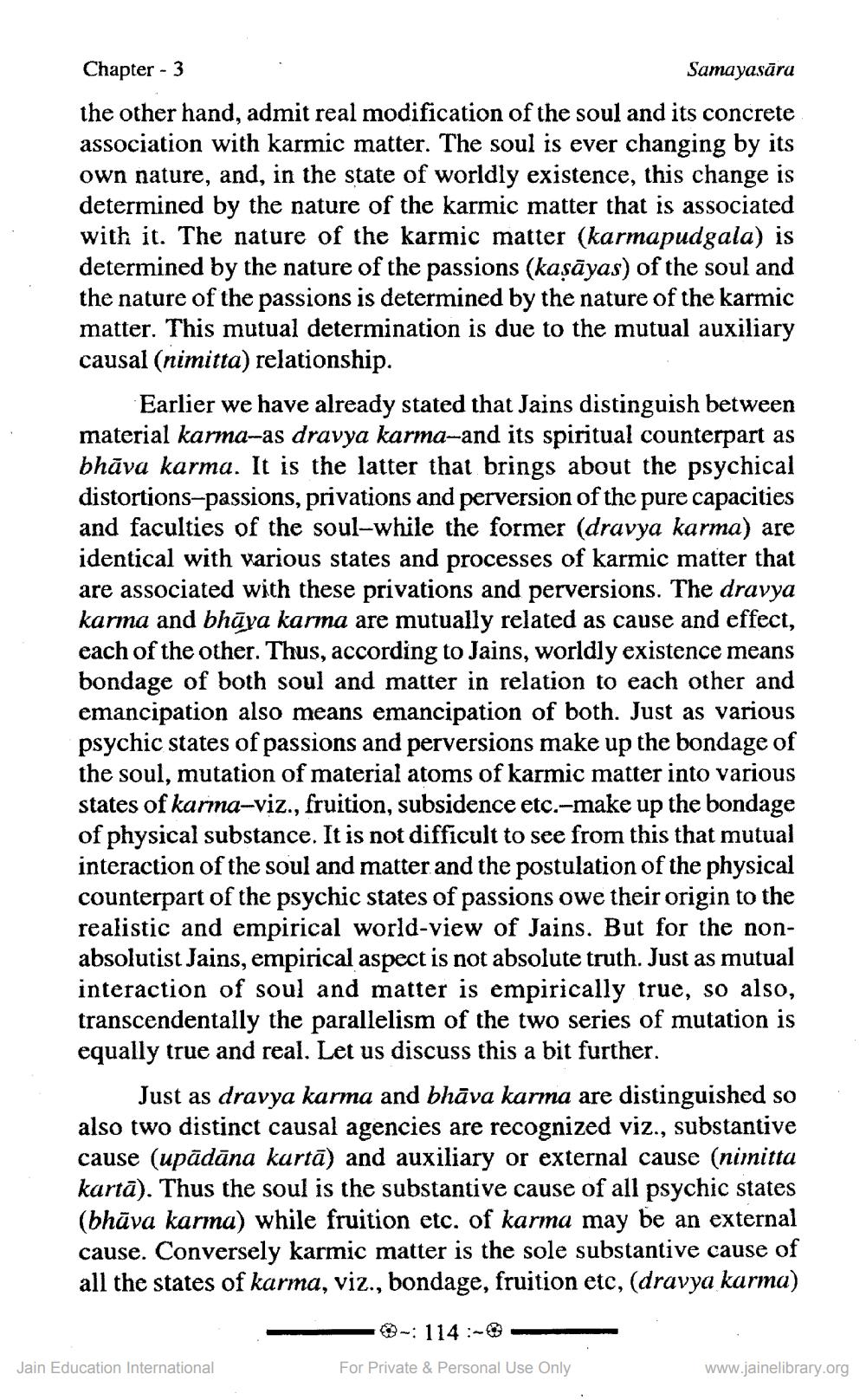________________
Chapter - 3
Samayasāra the other hand, admit real modification of the soul and its concrete association with karmic matter. The soul is ever changing by its own nature, and, in the state of worldly existence, this change is determined by the nature of the karmic matter that is associated with it. The nature of the karmic matter (karmapudgala) is determined by the nature of the passions (kasāyas) of the soul and the nature of the passions is determined by the nature of the karmic matter. This mutual determination is due to the mutual auxiliary causal (nimitta) relationship.
Earlier we have already stated that Jains distinguish between material karma--as dravya karma-and its spiritual counterpart as bhāva karma. It is the latter that brings about the psychical distortions-passions, privations and perversion of the pure capacities and faculties of the soul-while the former (dravya karma) are identical with various states and processes of karmic matter that are associated with these privations and perversions. The dravya karma and bhāya karma are mutually related as cause and effect, each of the other. Thus, according to Jains, worldly existence means bondage of both soul and matter in relation to each other and emancipation also means emancipation of both. Just as various psychic states of passions and perversions make up the bondage of the soul, mutation of material atoms of karmic matter into various states of karma-viz., fruition, subsidence etc.-make up the bondage of physical substance. It is not difficult to see from this that mutual interaction of the soul and matter and the postulation of the physical counterpart of the psychic states of passions owe their origin to the realistic and empirical world-view of Jains. But for the nonabsolutist Jains, empirical aspect is not absolute truth. Just as mutual interaction of soul and matter is empirically true, so also, transcendentally the parallelism of the two series of mutation is equally true and real. Let us discuss this a bit further.
Just as dravya karma and bhāva karma are distinguished so also two distinct causal agencies are recognized viz., substantive cause (upādāna kurtā) and auxiliary or external cause (nimitta kartā). Thus the soul is the substantive cause of all psychic states (bhāva karma) while fruition etc. of karma may be an external cause. Conversely karmic matter is the sole substantive cause of all the states of karma, viz., bondage, fruition etc, (dravya karma)
- -: 114:Jain Education International For Private & Personal Use Only
www.jainelibrary.org




